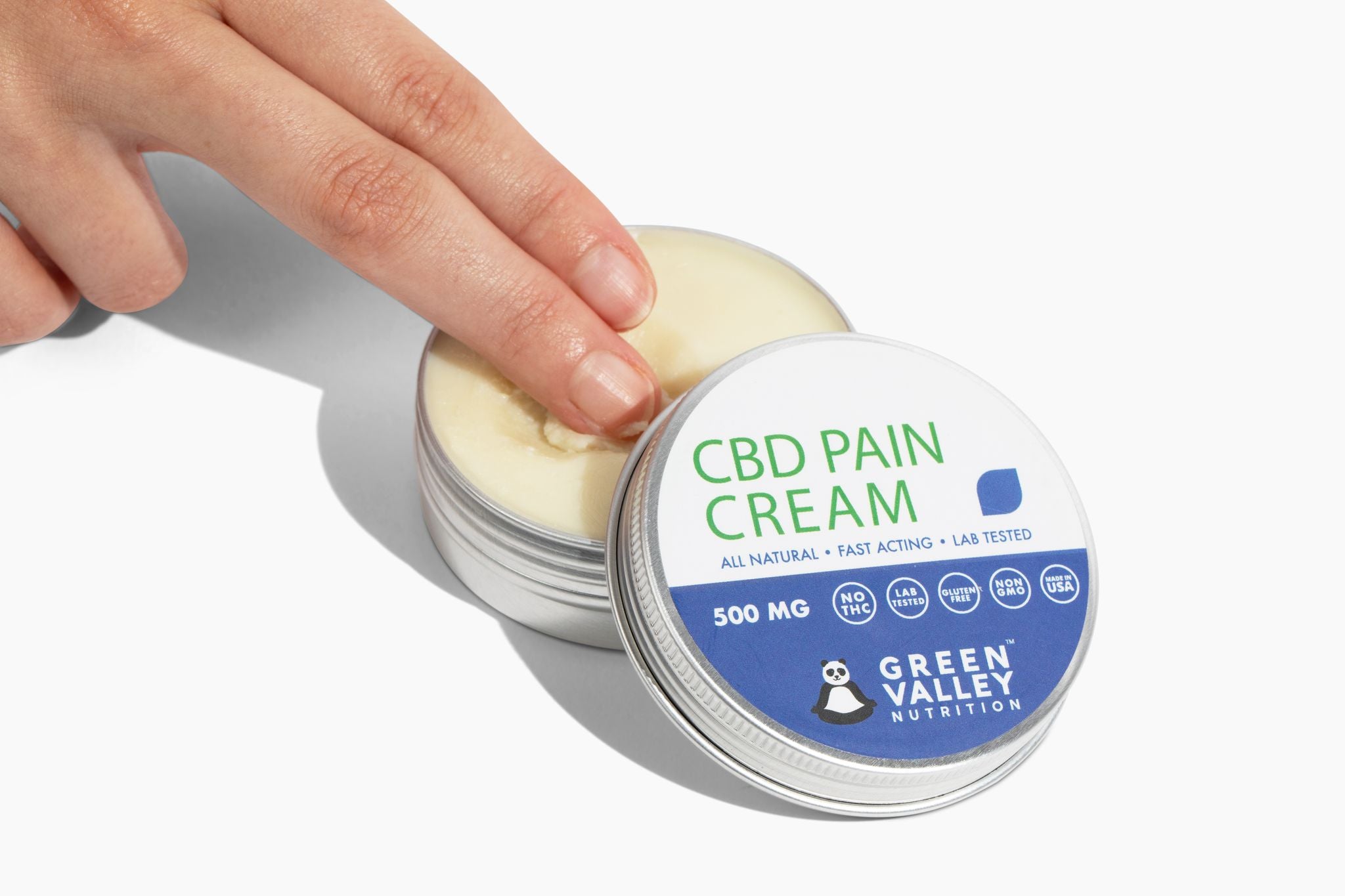Serenity CBD Cream for Pain: Locate Relief and Recover Comfort Normally
Serenity CBD Cream for Pain: Locate Relief and Recover Comfort Normally
Blog Article
Discover the Scientific Research Behind CBD Pain Cream and Its Healing Effects
As the need for all-natural pain relief choices proceeds to rise, the scientific area has turned its interest to the healing impacts of CBD pain lotion. Comprehending the intricate mechanisms by which CBD connects with the body's endocannabinoid system to relieve discomfort is essential in deciphering its efficacy. From its anti-inflammatory residential properties to the complex neurological results that regulate discomfort assumption, CBD's potential as a discomfort monitoring service is a topic of recurring study and clinical interest. Remain tuned to untangle the science behind CBD discomfort cream and exactly how it holds pledge for those looking for choice avenues for discomfort relief.
Endocannabinoid System and CBD Pain Alleviation
What duty does the endocannabinoid system play in CBD discomfort relief? The endocannabinoid system (ECS) is a complex network of receptors, enzymes, and endocannabinoids that play an essential role in managing different physical procedures, including discomfort experience. It interacts with the ECS to modulate discomfort assumption and inflammation when CBD is applied topically or ingested. CBD exerts its results by targeting cannabinoid receptors, specifically CB1 and CB2 receptors, which are plentiful in the main nerves and immune cells, respectively. By binding to these receptors, CBD can prevent the transmission of pain signals and reduce swelling, leading to discomfort alleviation.

Systems of CBD for Discomfort Management
Exploring the elaborate devices whereby CBD runs in pain administration discloses its possible as a useful restorative tool in alleviating different types of pain. CBD interacts with the endocannabinoid system, making up cannabinoid receptors (CB1 and CB2) dispersed throughout the body. When CBD is administered, it modulates these receptors, affecting neurotransmitter launch and dampening pain signals. Furthermore, CBD's anti-inflammatory residential or commercial properties play a critical duty suffering monitoring by decreasing inflammation at the site of discomfort.

Anti-Inflammatory Characteristics of CBD
In clarifying the efficacy of CBD hurting monitoring, a significant facet lies in its potent anti-inflammatory residential properties. CBD, or cannabidiol, has garnered focus for its capability to regulate inflammatory responses within home the body. Inflammation is a complicated biological response that plays an important function in the body's immune system, but when it ends up being persistent, it can contribute to various health concerns, consisting of discomfort. CBD engages with the endocannabinoid system, his response especially targeting CB2 receptors found in the immune cells. By triggering these receptors, CBD can assist control immune reactions and reduce inflammation.
Studies have revealed that CBD can inhibit inflammatory moderators and cytokines, therefore moistening the inflammatory waterfall. This anti-inflammatory result is specifically appealing for problems defined by persistent inflammation, such as arthritis, inflammatory digestive tract condition, and neuropathic discomfort. By minimizing inflammation, CBD not just attends to the signs yet also targets the underlying cause of discomfort, making it a valuable restorative agent for taking care of a large range of inflammatory problems.
Neurological Effects of CBD on Discomfort
CBD applies profound neurological impacts on discomfort assumption through its interaction with certain receptors in the central nervous system. By influencing the activity of these receptors, CBD can aid control pain sensitivity and swelling, providing potential therapeutic benefits for individuals suffering from various kinds of discomfort problems.
Studies have revealed that CBD's action on the endocannabinoid system can lead to the inhibition of pain signaling pathways, decreasing the assumption of pain. Furthermore, CBD has actually been discovered to have neuroprotective properties, which can aid relieve neuropathic discomfort by protecting neurons from damage. The capacity of CBD to regulate discomfort at a neurological degree makes it a promising option for taking care of persistent pain conditions where conventional treatments may drop short.
Medical Research Studies Supporting CBD Pain Relief

Final Thought
To conclude, the scientific research behind CBD pain cream discloses its possible restorative effects through the inflection of the endocannabinoid system. CBD's systems for pain management include its anti-inflammatory buildings and neurological impacts webpage on discomfort assumption. Clinical research studies sustain the usage of CBD for discomfort relief. More research is required to fully understand the degree of CBD's advantages in handling various kinds of pain.
As the demand for natural discomfort relief options proceeds to rise, the clinical neighborhood has actually transformed its attention to the restorative effects of CBD pain cream. From its anti-inflammatory homes to the complicated neurological effects that modulate pain understanding, CBD's possible as a discomfort management remedy is a topic of continuous research and medical interest.Building upon the understanding of CBD's neurological effects on discomfort understanding, clinical researches have offered valuable insights right into the efficiency of CBD in offering pain alleviation. A research published in the European Journal of Pain showed that using CBD topically lowered pain and inflammation in rats with joint inflammation without any type of noticeable side impacts. CBD's devices for discomfort management include its anti-inflammatory residential properties and neurological impacts on discomfort perception.
Report this page